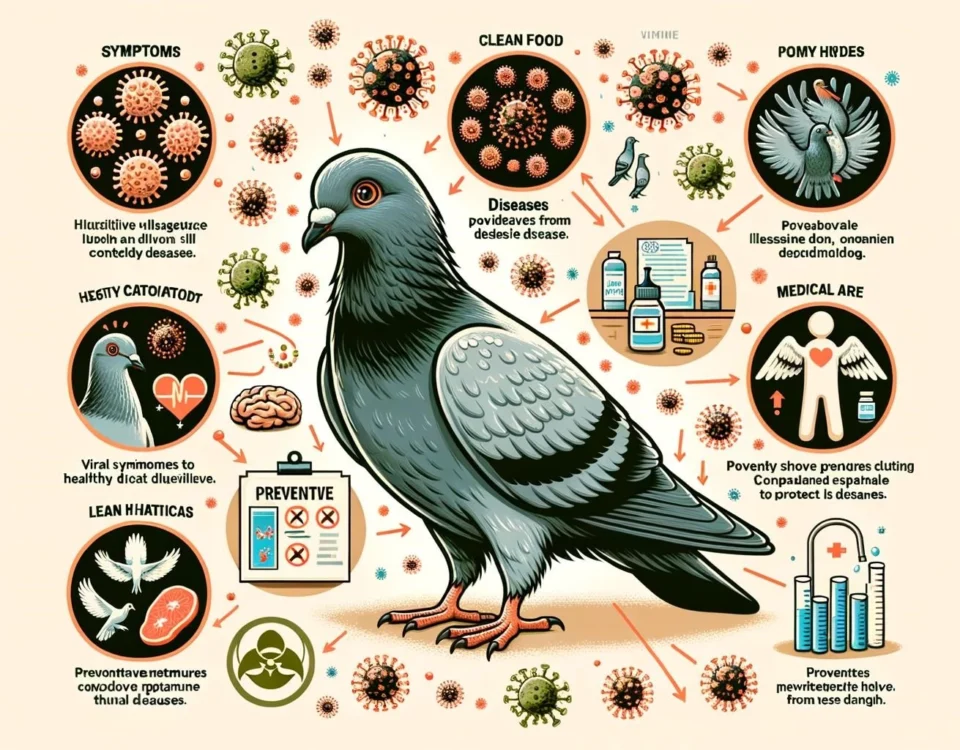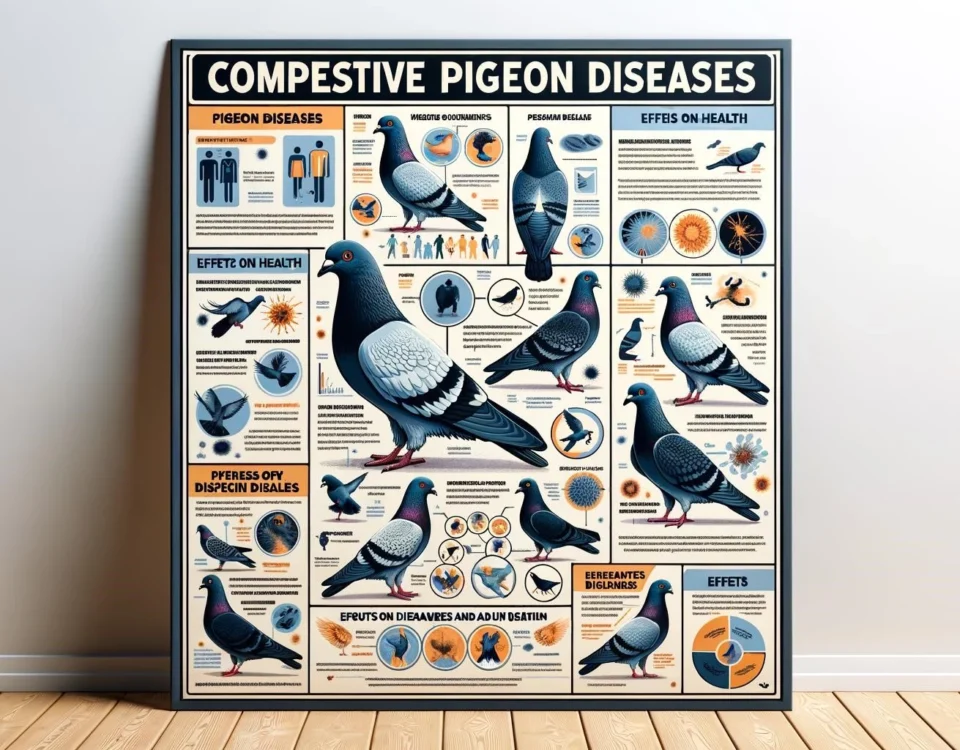Urban pigeons, often seen as harmless city dwellers, can surprisingly be carriers of various diseases that pose significant health risks to humans. From common diseases linked to pigeon droppings such as Cryptococcosis and Histoplasmosis to others like Candidiasis and Salmonellosis, these birds harbor a variety of pathogens. Beyond these, pigeons can also carry parasites, mites, fleas, and even the West Nile virus. Understanding these health hazards and implementing preventive measures is crucial in maintaining a safe urban environment.
Key Takeaways
- Pigeons can carry a variety of diseases that can pose a risk to human health.
- Common diseases associated with pigeon droppings include Cryptococcosis, Histoplasmosis, Psittacosis, Candidiasis, and Salmonellosis.
- Pigeons can also carry parasites such as mites and fleas, as well as the West Nile virus.
Pigeons are known carriers of various pathogens that can lead to the spread of harmful diseases. One of the most common diseases associated with pigeon droppings is Cryptococcosis. This fungal infection can affect different parts of the body, including the lungs and central nervous system. Symptoms of Cryptococcosis may include respiratory difficulties, fever, cough, headaches, and fatigue.
Another disease associated with pigeon droppings is Histoplasmosis, which is caused by a fungus called Histoplasma. Inhalation of spores from dried pigeon droppings can lead to this respiratory disease. Symptoms of Histoplasmosis are flu-like and may include a dry cough, fever, fatigue, muscle aches, and headaches.
Psittacosis is a highly infectious disease caused by the bacterium C. psittaci, which can be transmitted to humans through contact with infected pigeons or their droppings. Symptoms of Psittacosis can range from mild flu-like symptoms to severe respiratory complications. It is important to seek medical attention if you suspect you have been infected with Psittacosis.
Other Diseases and Health Risks
In addition to the diseases associated with pigeon droppings, pigeons can also carry other diseases and health risks. Pigeons are known carriers of the Candida albicans fungus, which can cause a skin infection called candidiasis. This infection can be transmitted to humans through contaminated water.
Pigeons can also carry Salmonella bacteria, which can cause Paratyphoid in humans. This infection can affect different parts of the body, such as joints, intestines, or genitals. Transmission can occur through contact with infected pigeons, exposure to their droppings, or ingestion of contaminated food and water.
Pigeons are carriers of the Toxoplasma gondii parasite, which causes toxoplasmosis. This infection can affect various parts of the body and may cause symptoms such as fever, fatigue, and swollen lymph nodes.
Pigeons are also carriers of mites, fleas, and the West Nile virus, which can cause discomfort and serious health issues in humans.
Prevention and Precautions
To prevent the spread of diseases associated with pigeons, it is important to take certain precautions. Avoid direct contact with pigeons, their droppings, and nesting areas. If you come into contact with pigeon droppings, wash your hands thoroughly with soap and water. Keep your living areas clean and free from pigeon infestations.
It is also important to maintain good hygiene practices and avoid consuming food or water that may have been contaminated by pigeons or their droppings. If you suspect you have been infected with a pigeon-related disease, seek medical attention promptly.
Overall, while pigeons can carry diseases that can affect human health, the risk of severe illness is relatively low. Practicing good hygiene and taking necessary precautions can help minimize the potential health hazards associated with pigeons in urban environments.









